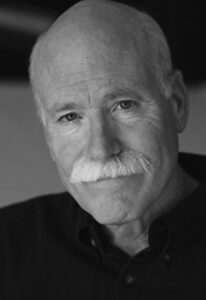rev. of The Lover of History by Jonathan Dee
Jonathan Dee's prescient novel.
The Lover of History, was published in 1990, just before the Gulf War, and save for a few brief, favorable reviews, the book was, more or less, ignored. One supposes this had something to do with the timing of publication. For though the novel is elegantly written, precisely observed, and thoughtful, its initial readers must have also found it redundant. After all, in early 1991, the details of Dee's book were being played out, with remarkable accuracy, in the morning newspapers and on the evening news. Perhaps now, with the war over, the book can be appreciated because of, instead of in spite of, its prophetic wisdom.
The Lover of History focuses on three young adults, all living and working in New York City. Kendall is a disgruntled night engineer at an all-news radio station. Julian, Kendall's lover, is a handsome, emotionally unavailable singer who specializes in commercial jingles. Kendall's roommate is Warner, a history instructor at an upscale private school. The relationships among the two men and one woman are fragile at best. Kendall and Warner are mere acquaintances who, short of funds, have rented a one-bedroom apartment together. They've put up a wall in the bedroom they share and have grown sufficiently uncomfortable with the arrangement to hate, however politely, each other. Julian, who has his own apartment, rarely offers his place up for meetings with Kendall. Instead, Warner is made to suffer through the sounds of the couple making love on the other side of the makeshift wall, and Kendall is made to understand that she is a guest in Julian's home, and in his heart.
In their very dissatisfaction with their lives and each other, Dee's characters are potentially unappealing, but they are redeemed by their capacity for change. The catalyst for these changes is an assassination that takes place during a televised press conference; the secretary of state is shot in the small, distant country of Colozan.
At first, Warner believes in the import of the event because, for Warner, the political is necessarily personal. Kendall, however, views "news as a commodity that she produces," while Julian seems to think about the event as little more than fodder for cocktail party chitchat. As the book proceeds, the characters reexamine their relationships to public events — and gradually the definition of public event expands to include the external world in general. Part of the conflation of the personal and political is moral, related to the conflict in Colozan. It's less about an objection to war than about an objection to war as image, war as reports of public reaction to war, war as evasive language. Warner responds to news reports with "a real sense of moral alarm, not only at the events he had seen and heard described but at the great edifice of image and language which had been constructed to try, he felt, to keep him from understanding what was happening at anything other than the most
ambiguous, symbolic level."
But there is something beyond moral outrage here, since for these young characters, the war threatens anything like a coherent definition of self. Regarding the news coverage, Warner "felt as if someone was using his name without permission." Certainly, all the characters in the book are, without realizing it, using their own names without permission. That is, they all feel that they are not responsible for the decisions that they make concerning their lives. They excuse themselves from the very inauthenticity of their lives by persistently imagining themselves apart from the group of people who do the things they do. Julian is a small-time singer, but he doesn't complain, as others do, about his gigs, so he feels he has distinguished himself. Warner is educating the very group of people he most disdains, yet he doesn't see the irony in this. But, with the war, Kendall, Warner, and Julian
do see themselves identified in a way that they have not specifically chosen. This is so clearly an insult when it is done by a large power that they are forced to see, to varying degrees, how they have subjected themselves to the same insult.
Early on, we see Kendall carrying two hanging plants out of her apartment building: "At the mirror by the front door, she smiled at her reflection; holding each plant by the hook palms up, she thought she looked like Justice." Of all the characters, she comes the closest to honestly choosing her own life. The alteration starts when she begins "slowly, to connect her feelings of personal dread with the general air of dread that surrounded her." When a war begins between the United States and Colozan, she thinks, "This is the way it happens." But then, because she is in the news business, she immediately realizes that "it has never happened this way before."
For all the characters, a fluctuating awareness of the meaning of larger events is coupled with an intense awareness of the look and sound of the city they live in and the mannerisms of people around them. Here, Dee is in his element. He has a gift for descriptive details and figurative language. Microphones on poles are described as waving "lazily like cattails beside a lake." Yellow taxis dart "in and out of each other's company like fish." Buses strain along, "followed by kite tails of paper and grit." The smallest of details — a look here, an extra dollar left for a tip there — indicate everything about the characters' relationships. And when Dee leaves the physical world to describe the internal emotions of his characters, he's just as accurate. Even when we are less than charmed by his characters, we are sympathetic with them. In this way, Dee is much like Cheever, whose language echoes throughout Dee's novel.
The flaws that are here have principally to do with the abrupt resolution of the story. In truth, however, the disappointment of the ending doesn't affect the reading — for it's never been the story, exactly, that we are reading for, even though the changes in the characters and their relationships are absorbing. We are reading for the astute observations about the tensions of contemporary relationships among young people, and we are reading so we can look, with the author, at New York, and experience his frequently stunning perceptions as our own.
Debra Spark is a 1992-93 Bunting Fellow. Her work has most recently appeared in Praire Schooner, New Letters,
and Ploughshares.

